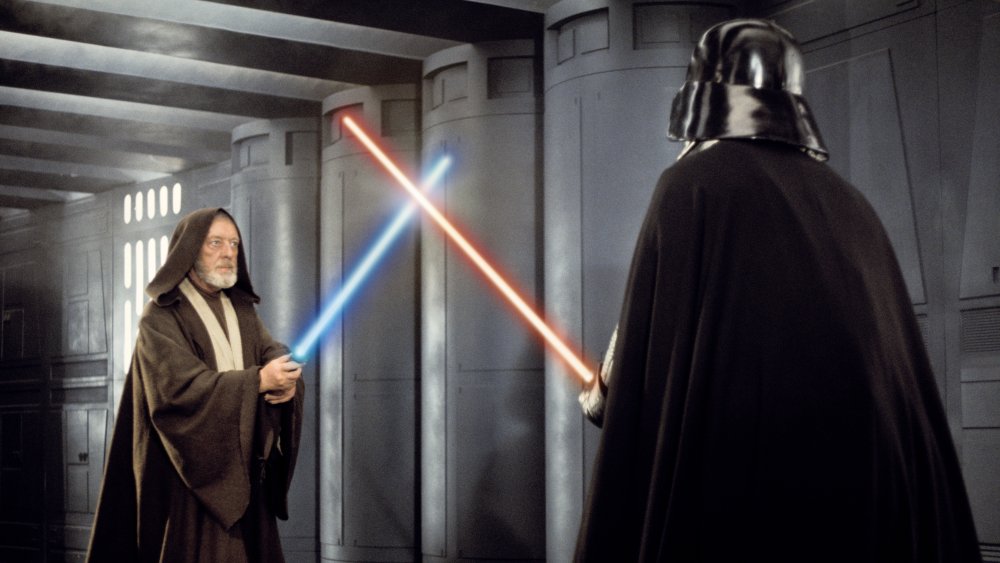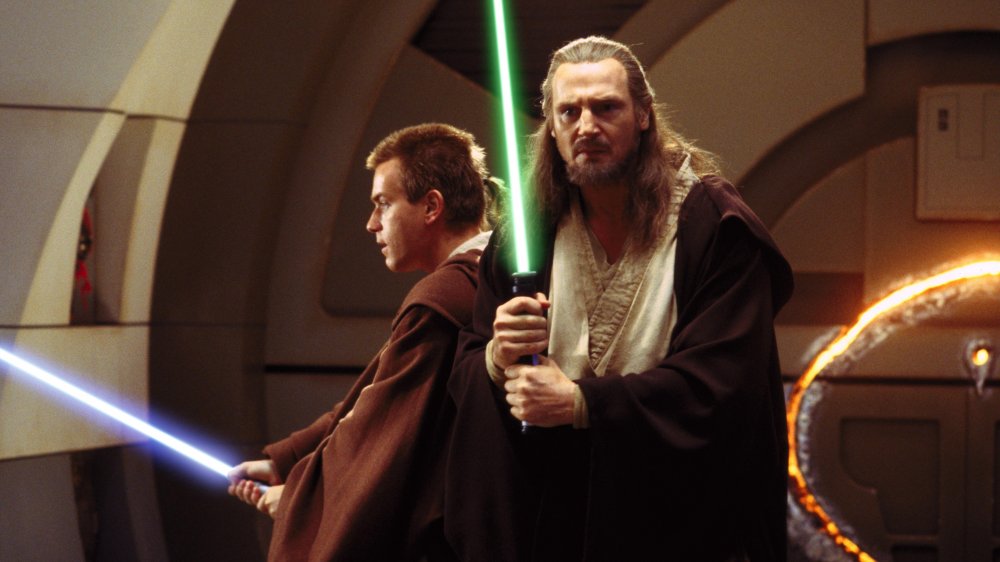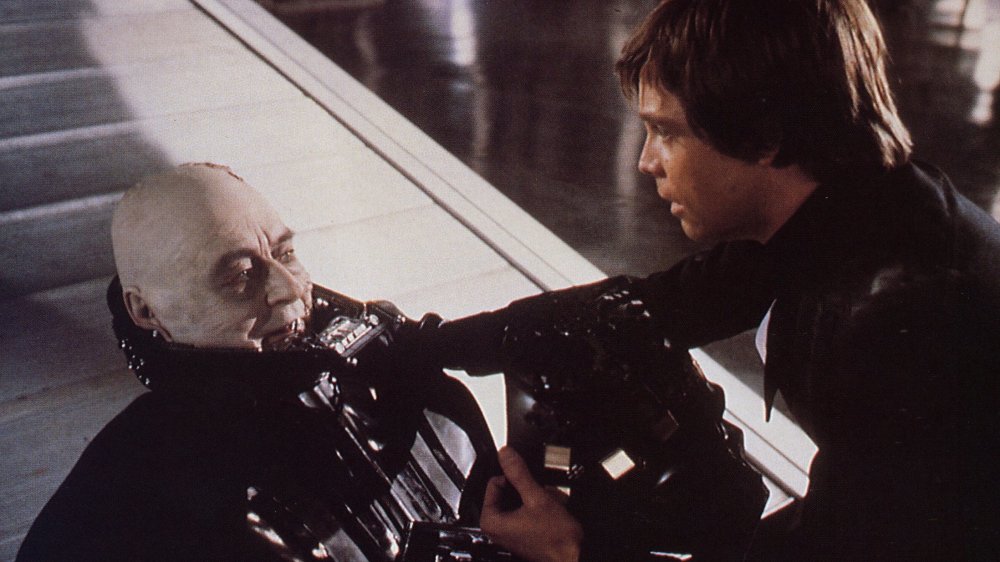Why The Lightsaber Fights In Star Wars Mean More Than You Think
Star Wars fans fixate on any number of the franchise's technical aspects, from its breakthrough visual effects to the respective power levels of each Force user. The lightsaber fights in particular — from the fight choreography to the weapons themselves — have become an iconic and much obsessed-over element of the universe. But during the second episode of the eight-part Disney+ docuseries Disney Gallery: The Mandalorian, director Dave Filoni explained how the flashiest parts of one of sci-fi's most beloved stories can also serve to illustrate the saga's most meaningful themes.
"Like you know, the Obi-Wan [and] Darth Vader fight isn't like the most wonderfully staged combat that you're ever gonna see, but there's so much at stake," Filoni said. "It's so meaningful when Obi-Wan dies, that we all feel like Luke."
Despite the fight between these two characters in Star Wars: A New Hope being one of the most high-profile and influential of the franchise, Filoni opines that it's actually a lightsaber battle in the prequel trilogy — specifically The Phantom Menace — that speaks the most to the franchise's messages about father figures, how someone like Anakin Skywalker can become something like Darth Vader, and why Luke wins out in the end. "I love the lightsaber fight with Darth Maul, not because it's the lightsaber fight, but because George is so good at crafting why that fight's important every time," Filoni said.
Qui-Gon was always Anakin's father-figure, not Obi-Wan
During The Phantom Menace's climactic battle, Obi-Wan Kenobi (Ewan McGregor) and Qui-Gon Jinn (Liam Neeson) face off against the menacing Darth Maul (Ray Park). Obi-Wan and Qui-Gon are often seen as mentors and father figures to Anakin, but Filoni argues the title of father figure specifically belongs to one of them. "Obi-Wan trains Anakin at first out of a promise he makes to Qui-Gon, not because he cares about him," Filoni explains. "When they find [Anakin] on Tatooine, he says, 'Why do I feel like we've found another useless life form?' He is comparing Anakin to Jar-Jar, and he's saying this is a waste of our time."
Echoing one of Obi-Wan's most famous prequel lines, Filoni then identifies the Jedi as a brother to Anakin, meaning the title of father-figure actually goes to Qui-Gon. "Qui-Gon hasn't given up on the fact that Jedi are supposed to care and love and that that's not a bad thing," Filoni explained. "The rest of the Jedi are so detached, and they've become so political that they've really lost their way... but Qui-Gon is ahead of them all."
It's this kind of attachment that Anakin needs, particularly after his mother dies. Qui-Gon represents the version of a mentor and father-figure that could have helped Anakin stave off the dark side and Palpatine's enticements. As a result of Qui-Gon's fall in battle with Maul, death becomes a key reason why the Skywalker prophecy is never fulfilled through Anakin.
"In Phantom Menace, you're watching these two Jedi in their prime fight this evil villain," Filoni said on Disney Gallery. "What's at stake is really how Anakin is going to turn out... That's why it's the 'Duel of the Fates.' It's the fate of this child. And depending on how this fight goes, Anakin's life is gonna be dramatically different."
The fight in Phantom Menace determines the outcome of the fight in Return of the Jedi
With only Obi-Wan left to guide Anakin through a story that's ultimately about family, "it's a failure for Anakin," Filoni explains. When the future Emperor comes to him, he submits to his anger and his hate. Years later, when the choice is then presented to Luke between the light and dark side, "the only thing that's gonna save them is not his connection to the Force," according to Filoni. Unlike his father, Luke has the father figure he needs right in front of him.
"What saves Luke is his ability to look at all that and look at his father and say no," Filoni said. "'I'm gonna throw away this weapon, I'm not gonna do that. I'm gonna let that go and be selfless.' He says, 'You know, I'm a Jedi like my father before me,' but what he's really saying, and why I connect so powerfully to this is [that it's] like he's saying, 'I love my father, and there's nothing you can do that's going to change that.'"
According to Filoni, it's at this moment fans see Vader "decide to be the father that [Luke's] never had," giving up all the power in the galaxy to save his son and save himself. These moments and these conflicts, beginning with Qui-Gon and Maul, embody the selfless act and family themes at the heart of the entire franchise.
"That moment in [Phantom Menace], which a lot of people I think diminish it as just a cool lightsaber fight, it's everything that the entire three films of the prequels hang on," Filoni said.


